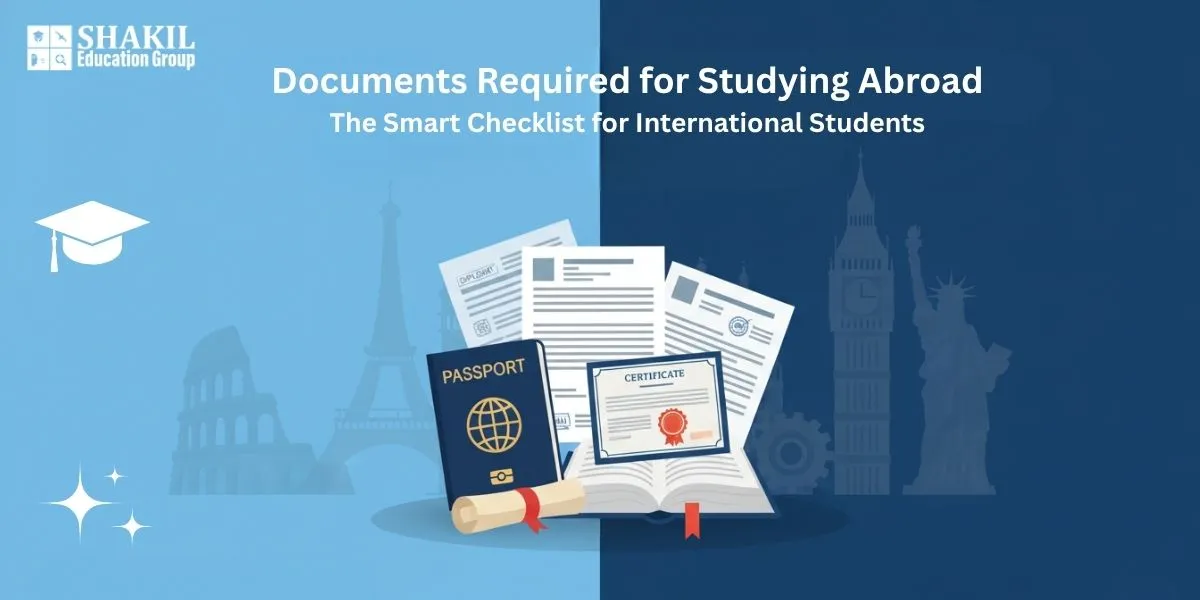Every year I meet students who are ready to begin their study-abroad journey — bright, motivated, full of dreams. Yet many stall at one critical point: documentation.
In international admissions, documents are not just formalities; they are proof of readiness.
Over the last decade at Shakil Education Group, I have reviewed thousands of applications to universities across Europe, North America, Oceania, and Asia. I’ve seen that students who prepare their paperwork early and accurately often secure admission and visas faster, with fewer complications.
This article breaks down all the essential documents required for studying abroad — from university application to visa approval — so you can prepare with confidence and clarity
- Introduction
- 1 — Why Documentation Matters
- 2 — Academic Transcripts and Certificates
- 3 — Proof of English-Language Proficiency
- 4 — Passport and Identification Documents
- 5 — Curriculum Vitae (CV) or Resume
- 6 — Statement of Purpose (SOP) or Motivation Letter
- 7 — Letters of Recommendation (LORs)
- 8 — Standardized Test Scores (if applicable)
- 9 — Financial Documents
- 10 — Proof of Admission and Offer Letter
- 11 — Visa Application Documents
- 12 — Medical and Health Insurance Certificates
- 13 — Accommodation and Travel Proof
- 14 — Passport-Sized Photographs
- 15 — Digital Document Management
- 16 — Additional Documents for Specific Regions
- 17 — How to Verify and Authenticate Documents
- 18 — Organizing Your Study Abroad Folder18 — Organizing Your Study Abroad Folder
- 19 — Common Mistakes to Avoid
- 20 — Quick Checklist of Documents for Studying Abroad
- 21 — Final Thoughts
- Frequently Asked Questions (FAQs)


